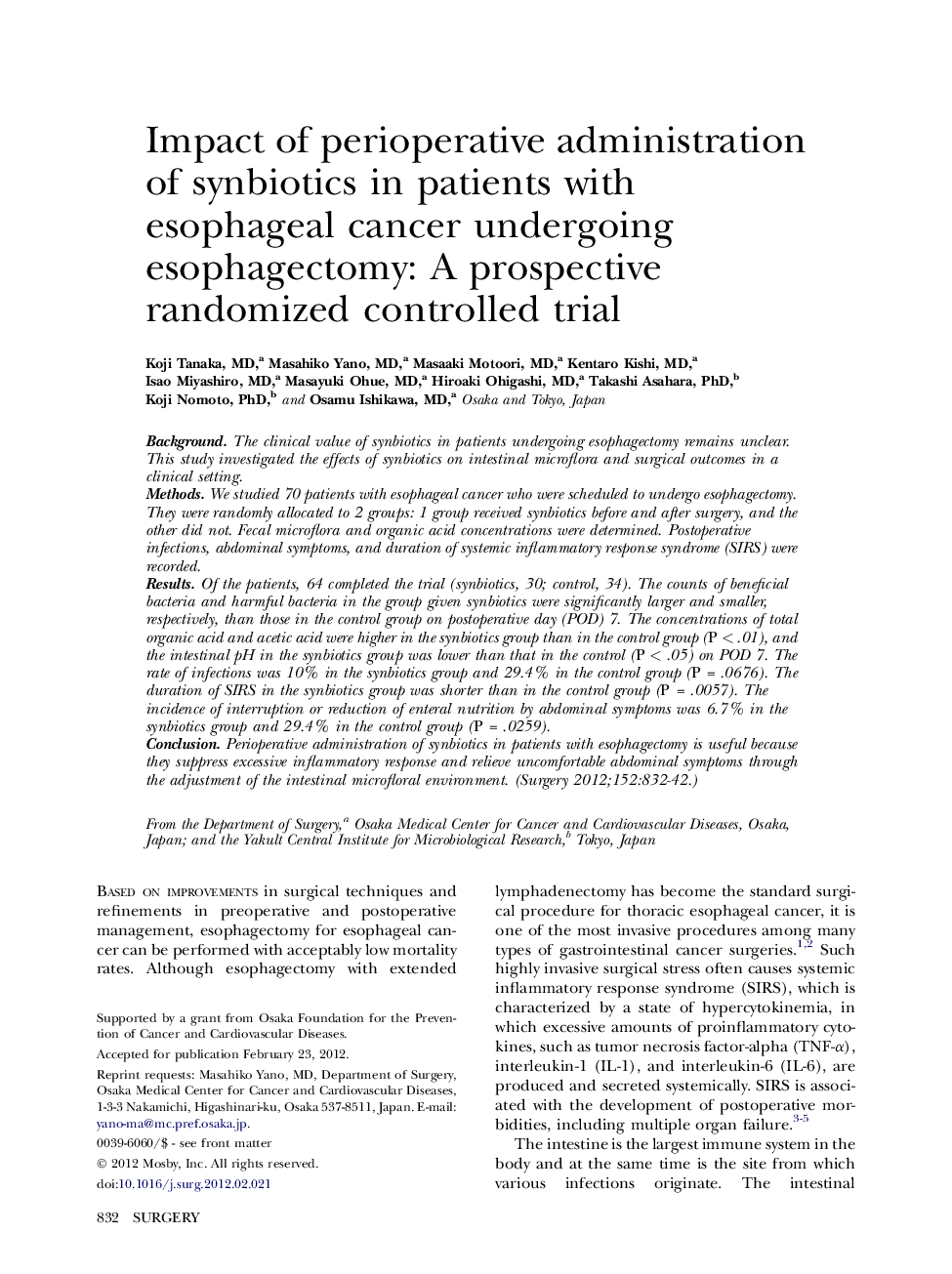| Article ID | Journal | Published Year | Pages | File Type |
|---|---|---|---|---|
| 4307245 | Surgery | 2012 | 11 Pages |
BackgroundThe clinical value of synbiotics in patients undergoing esophagectomy remains unclear. This study investigated the effects of synbiotics on intestinal microflora and surgical outcomes in a clinical setting.MethodsWe studied 70 patients with esophageal cancer who were scheduled to undergo esophagectomy. They were randomly allocated to 2 groups: 1 group received synbiotics before and after surgery, and the other did not. Fecal microflora and organic acid concentrations were determined. Postoperative infections, abdominal symptoms, and duration of systemic inflammatory response syndrome (SIRS) were recorded.ResultsOf the patients, 64 completed the trial (synbiotics, 30; control, 34). The counts of beneficial bacteria and harmful bacteria in the group given synbiotics were significantly larger and smaller, respectively, than those in the control group on postoperative day (POD) 7. The concentrations of total organic acid and acetic acid were higher in the synbiotics group than in the control group (P < .01), and the intestinal pH in the synbiotics group was lower than that in the control (P < .05) on POD 7. The rate of infections was 10% in the synbiotics group and 29.4% in the control group (P = .0676). The duration of SIRS in the synbiotics group was shorter than in the control group (P = .0057). The incidence of interruption or reduction of enteral nutrition by abdominal symptoms was 6.7% in the synbiotics group and 29.4% in the control group (P = .0259).ConclusionPerioperative administration of synbiotics in patients with esophagectomy is useful because they suppress excessive inflammatory response and relieve uncomfortable abdominal symptoms through the adjustment of the intestinal microfloral environment.
